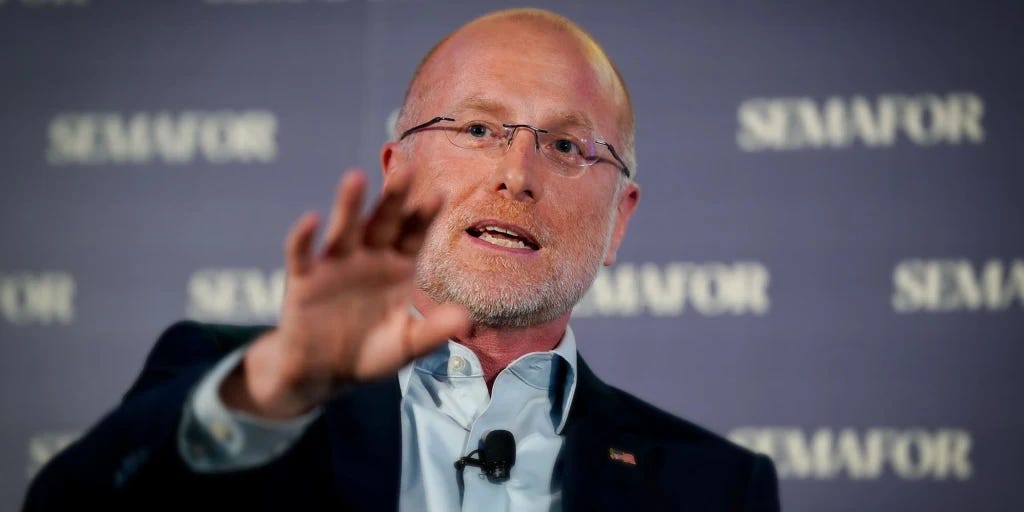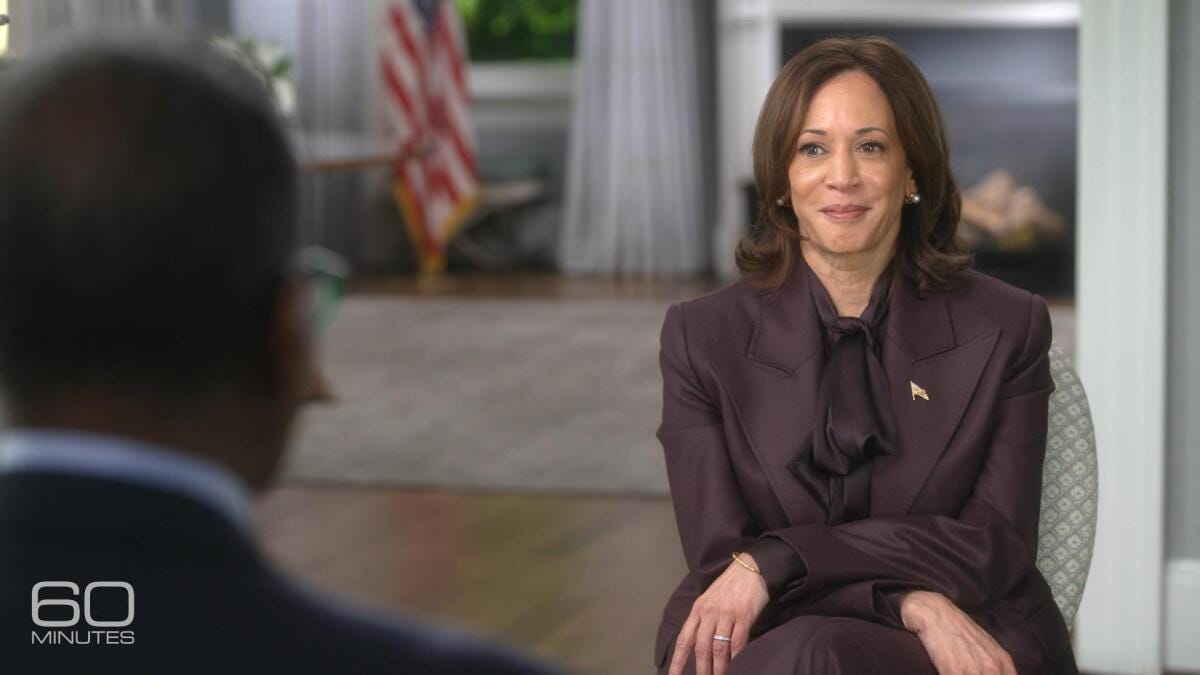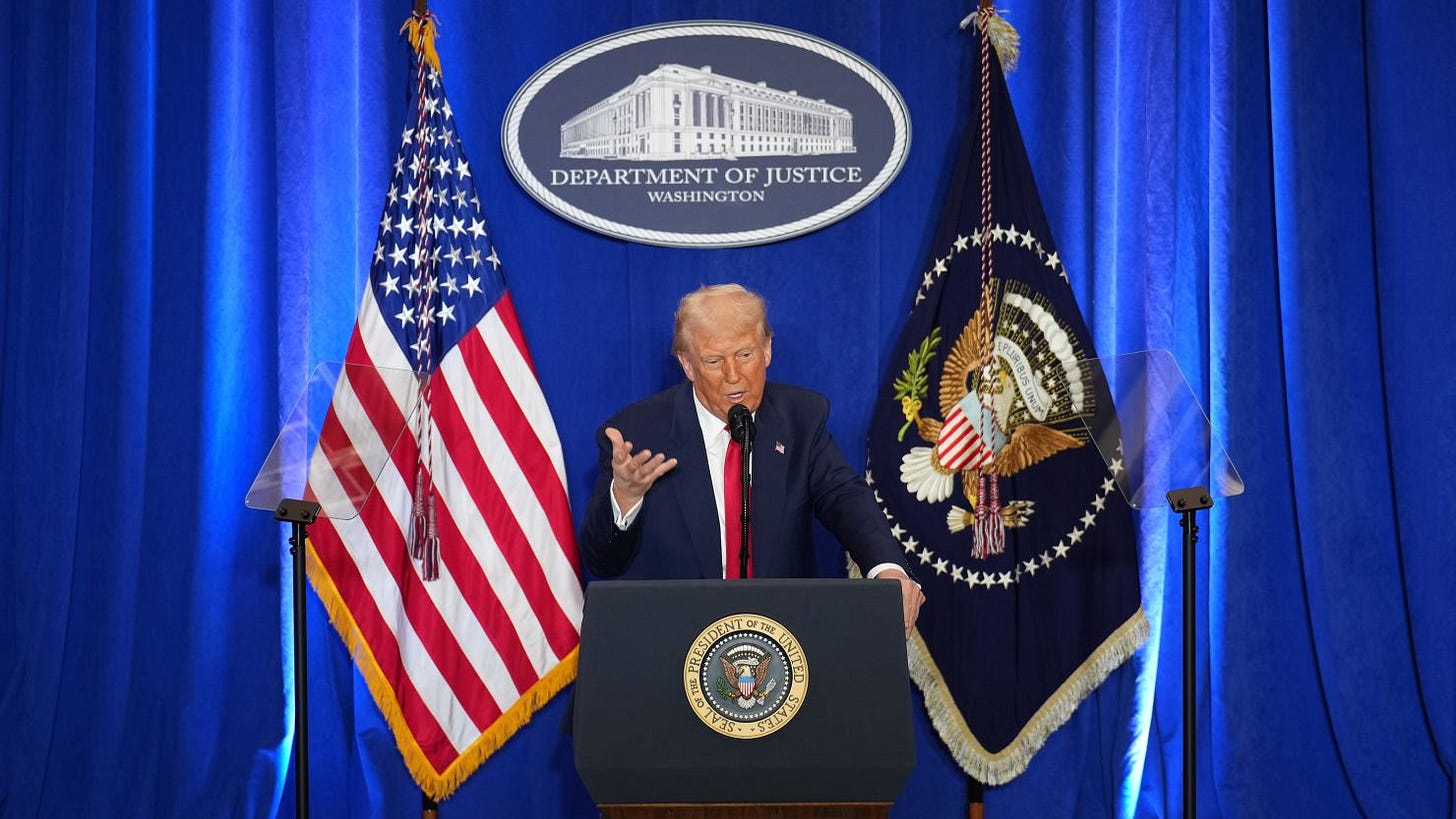The Most Powerful Man in Media You’ve Never Heard of
A story about power, punishment, and the battle for public trust.
Sponsored by
The media landscape changed dramatically in the 1980s. Partisan media has always existed, particularly in the newspaper arena. But when people began to communicate via the airwaves – TV and radio – the government decided that in order to get a license to broadcast, things needed to be fair.
In 1949, the Federal Communications Commission, or FCC, began requiring TV and radio stations to cover important public issues and present differing viewpoints fairly, because they were “public trustees.” This rule was known as the Fairness Doctrine, and it required broadcasters to give similar amounts of airtime for contrasting sides of controversial issues, allowed the subject of an attack piece (say, a business accused of wrongdoing) to respond to allegations, and more.
Sounds like a dream, right? Ronald Reagan and other conservatives didn’t think so. At the time, cable news networks like CNN were in their infancy, and Australian-born media magnate Rupert Murdoch was building his media empires – an empire that would later give rise to Fox News.
In 1987, after lawsuits in which the Supreme Court affirmed the constitutionality of the Fairness Doctrine, the FCC abandoned the rule, saying it violated free speech. Congress disagreed, and wanted to maintain the Fairness Doctrine, so they passed a bill requiring the FCC to continue to implement it. Ronald Reagan vetoed the bill.
Although the Fairness Doctrine is gone, the FCC still regulates radio, TV, and other media in the US. And currently, the FCC is being used to investigate media organizations the Trump administration doesn’t like, while permitting the “friendly” ones to do some of the same things the others are being investigated for.
Leading the FCC
The new head of the FCC, Brendan Carr, first joined the agency as a staffer in 2012 before becoming its general counsel. Appointed as a commissioner by President Trump during his first term and later reappointed by President Biden, he officially took over as FCC chairman this year. There are five FCC commissioners: three are meant to be from the party in power in the White House, and two from the minority party.
Carr also wrote the FCC section of Project 2025 (P25), the conservative plan to reshape the government. In it, Carr said he thinks the FCC needs big changes. He believes companies like Google and Meta have too much power over what people see online and how they shop.
"Today, a handful of corporations can shape everything from the information we consume to the places we shop," Carr wrote in P25. "These corporate behemoths are not merely exercising market power, they are abusing dominant positions." Carr advocates for eliminating Section 230 immunity, which would reclassify internet companies as publishers and not platforms, and make them accountable for what is said by users on their platforms.
FCC takes the lead
Carr has also taken aim at some broadcasters, accusing them of political bias, while allowing others with a different political bias free rein.
Last year, when he was still a candidate, Trump sued CBS for $20 billion, saying that they edited a 60 Minutes interview with Kamala Harris to make her responses look more polished than they actually were, and that in doing so, they were trying to harm his campaign. (The network also offered Trump an interview slot on the news magazine show, which he declined, before eventually winning the election.)
Before Trump’s lawsuit, a formal complaint was filed with the FCC by the conservative Center for American Rights (CAR), accusing WCBS, a CBS-owned station, of “engaging in significant and intentional news distortion” in how the Harris interview was edited. While the FCC isn’t allowed to censor the press or violate First Amendment rights, it is illegal for broadcasters to intentionally distort the news. If there is clear evidence of this, the FCC can take action. The complaint was thrown out last year by former FCC chairwoman Jessica Rosenworcel, who is a Democrat. But Carr revived the FCC investigation of the edits made to the Harris interview.
CBS is asking the FCC to drop the case, and has asked a Texas court to dismiss Trump's lawsuit, which echoes CAR’s complaint in contending that the editing of the 60 Minutes interviews was done to give an advantage to Harris, his Democratic opponent. Network attorneys said Trump is seeking to “punish a news organization for constitutionally protected editorial judgments they do not like.”
“They not only ask for $20 billion in damages but also seek an order directing how a news organization may exercise its editorial judgment in the future,” they wrote. “The First Amendment stands resolutely against these demands.” To make its case, CBS handed over the unedited transcript of its Harris to show there were no substantial edits of the Harris interview.
The FCC under Carr is also investigating radio and podcast company Audacy over reporting done by KCBS, a station owned by Audacy, on the Trump administration’s immigration enforcement actions in San Jose, California, in January. The station shared the live locations and vehicle descriptions of undercover immigration officials as they were looking for illegal immigrants. Carr suggested that KCBS’s reporting may have violated its “public interest obligations.” However, the First Amendment usually protects news coverage under freedom of the press.
Carr is also reviewing the reorganization plan that helped Audacy emerge from bankruptcy last year, a deal he opposed but was approved before Carr became FCC chairman. The plan made a company associated with Hungarian-born billionaire George Soros – a naturalized U.S. citizen and frequent target of right-wing criticism due to his progressive views – a major stockholder in the broadcast group.
(Audacy hosts my podcast, Here’s Where It Gets Interesting).
Carr has also initiated investigations into ABC’s moderation of a presidential debate and against NBC for allowing Kamala Harris to be a guest right before the election, even though Trump got a spot in an NFL game with far more viewers the next day.
From our sponsor:
To some, Trump’s efforts to dismantle parts of Voice of America were about reasserting control over government funded broadcasting. For others, it was political intrusion into independent journalism. With lawsuits piling up and media outlets split down the middle, it’s hard to separate the facts from the framing.
That’s where Ground News comes in. It lets you compare coverage on any story with insights into the political biases, financial interests, and blindspots shaping the narrative. Plus, a breakdown of each outlet’s credibility to help you think critically about the news you consume.
Preamble readers get an exclusive 40% discount on the unlimited access Vantage Plan. Click this link or visit ground.news/preamble to subscribe.
Defunding public broadcasters
Carr isn’t just targeting commercial news networks – he’s also going after broadcasters like NPR and PBS that receive portions of their budgets from federal funding.
In late January, Carr launched an investigation into these organizations, arguing they might be violating federal law by airing sponsorship messages that resemble advertisements. As noncommercial stations, they can’t run ads.
Katherine Maher and Paula Kerger, the heads of NPR and PBS, denied they had violated federal regulations or guidelines.
Still, Carr suggested Congress should cut their funding. “I do not see a reason why Congress should continue sending taxpayer dollars to NPR and PBS given the changes in the media marketplace,” he wrote.
But CBS, Audacy, and public broadcasters aren’t the only targets. Carr has reopened investigations into NBC, ABC, Verizon, Comcast, and other major networks.
Democrats call it a witch hunt
Sen. Richard Blumenthal, the top Democrat on the Senate Investigations Subcommittee, has launched an inquiry into whether the FCC is unfairly targeting news organizations Trump dislikes, calling the investigations “unprecedented” and “intrusive.”
In his letter to the FCC, Blumenthal wrote the investigations “single out media broadcasters that faced the wrath of President Trump during his Presidential campaign, including actual litigation or outright threats of investigations in retaliation for perceived negative coverage.”
The senator continued: “This exclusive targeting to the apparent benefit of the President is further reflected in the fact that other media broadcasters, particularly allies of the President, have not faced any similar scrutiny.”
His main concern? The FCC appears to be punishing Trump’s critics while ignoring networks that favor him.
For example, in a letter to Comcast and NBCUniversal, Carr said he was concerned they were “promoting…of DEI [Diversity, Equity, and Inclusion] in a manner that does not comply with FCC regulations.” One of President Trump’s early executive orders ended the government’s DEI programs. “Any businesses that are looking for FCC approval, I would encourage them to get busy ending any sort of their invidious forms of DEI discrimination,” Carr said in an interview.
But no such investigation appears to have been launched against FOX, whose website still actively promotes DEI. It states, “FOX is committed to fostering a culture of belonging where everyone, from everywhere, feels welcome and can thrive.”
The company site features affinity groups for Blacks, Asians, Hispanics, women, and those who are LGBTQ+. Despite this, Fox faces no FCC investigation so far.
What does the FCC want?
Ensuring that one media narrative – one that says positive things about the current administration, or at least keeps criticism to a minimum – seems to be a top priority. That includes blocking journalists from covering Trump or limiting their access.
In February, the White House banned Associated Press (AP) reporters from the Oval Office and Air Force One after AP refused to recognize the administration’s renaming of the Gulf of Mexico to the “Gulf of America.” Soon after, the White House took control of the press pool, a group of reporters who cover events and share information with other news outlets. This was previously managed by the White House Correspondents’ Association (WHCA) to ensure fair access.
Following the White House’s lead, the Pentagon removed major news outlets like NBC News, The New York Times, CNN, and The Washington Post from their workspaces covering the Department of Defense, replacing them mostly with conservative-leaning media.
Trump calls media “corrupt” and “illegal”
In mid-March, Trump took his attacks on the media even further. The president suggested some of what they do should be considered against the law and looked into.
“CNN and MS-DNC [Trump’s nickname for MSNBC] … are political arms of the Democrat Party and in my opinion, they’re really corrupt and they’re illegal, what they do is illegal,” Trump said during a speech at the Department of Justice.
The president also claimed that media outlets work together and that their reporting can influence judges' opinions.
“These networks and these newspapers are really no different than a highly paid political operative,” Trump said.
What’s next?
Trump’s battles with the press are far from over. With lawsuits, investigations, and new policies, his administration is reshaping how the media operates in the U.S. The fight will likely continue in the courts – and in public debates about what free speech really means.
But that doesn’t mean that this is just business as usual for the FCC – far from it. Kim Zarkin, who is the author of a book on the FCC, said, “This is jaw-droppingly different from how the agency has worked. I’ve never seen this.”
Carr makes that clear on his social media accounts that highlight and celebrate each run-in with the media. And to be clear, the role is one he relishes, bragging to friends that he is having “the time of his life,” according to The Daily Beast. Responding to the report, Carr proudly proclaimed on X, “Find a job you love, and you will never have to work a day in your life.”










Well, that was depressing.
But necessary.
Thank you for the information.
It is no longer possible to be an informed and thinking person without being depressed.
Sharon, as the only antidote is action, can you provide us with any courses of action to protect our free press?
Are there any guardrails or checks and balances?
Thank you for keeping us painfully informed so that we might possibly make a positive difference.
For decency!
The MAGA world loves to claim a return to “free speech” while the exact opposite is occurring. I’m so very tired of it all.